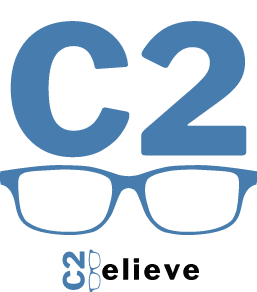Listen and follow
Introduction
One on One meetings are an important people-focused feature of the OKR management system.
Poor communications frustrates managers and employees
In Taiwan Tech companies, projects can sometimes be hampered by poor communication between managers and employees, affecting the work atmosphere. Also, new managers are thrust into leadership positions without any training which further complicates communications.
One of the important OKR features is the One on One meeting, which promotes good communications and boosts employee engagement.
Introducing the One on One meeting .
One on One meetings are recurring check-in meetings between manager and subordinate. Andy Grove, the father of OKR, insisted on these meetings as an integral part of a people-oriented culture.
These meetings are important to:
- give members a safe venue to voice concerns and give feedback
- make sure staff is on track and expectations are understood
- avoid surprises later in a project
- help staff make timely adjustments if needed
- build trust between managers and staff
- keep staff engaged and motivated
These meetings focus on employees, not the manager. The manager’s role is to listen, support, and guide.

Why One-on-one meetings are important.

Fosters good communications with CFR
CFR or Conversation, Feedback and Recognition is an important concept of OKR that encourages good communications and interpersonal skills.
- Conversations are about honest dialogue, listening, and understanding.
- Feedback allows employees a chance to voice opinions about management, colleagues, and team performance.
- Recognition is encouraged no matter how big or small an achievement is. Most engaged employees site recognition as a major contributor for motivation in their work.
Over time, you will become good at these interpersonal communication skills.
Learn interpersonal skills here “11 Essential Soft Skills (With Examples)”


Gives “voice” to employees.
Larger meetings are often dominated by managers, and many staff are shy about speaking up. That’s ok – it’s the culture in Taiwan. However, you’ll find that staff have a lot to say about their work when given the chance.
A One on One meeting gives staff a safe venue to voice their concerns, or challenges about their work.


Helps you gauge expectations, avoid misunderstandings.
Managers and employees should align on project expectations, but miscommunication often leads to mismatched perceptions.
Dialogue, inquiry and listening helps to uncover these hidden misunderstandings.


Makes sure everything is on track.
Generally, a manager should mostly be up to date about staff progress. With OKR, staff are responsible for recording and tracking their progress on a public forum.
But work is rarely simple. these meetings help managers uncover hidden setbacks, roadblocks, and technical challenges.

Allows for timely adjustments, and avoid surprises.
One on One meetings help uncover unpredictable challenges. Resolving them early prevents last-minute surprises. This is the important “agile” characteristic of OKR.

Builds trust.
Communications is inherently a trust building process. But trust doesn’t happen in a day – recurring One on One meetings incrementally build relationships between managers and employees.
So it’s important to be patient and maintain the cadence and discipline of one-on-one meetings.

How do you hold a One-on-One meeting?
These meetings are typically short (15-minutes) and once per month. But this can vary depending on circumstances, such as new employees, or urgency of a project.
If everything is on track, this kind of check-in will be short and unremarkable.
How do you hold these meetings?

First Break the ice – build trust.
Building trust is the key to leadership. In the book “Trillion Dollar Coach”, the venerated corporate coach Bill Campbell never started a meeting with “work”.
Start your meeting by breaking the ice.
- How’s the kids?
- How’s your commute?
- Is your Dad feeling better?
- Did you get your car fixed?
Getting to know your staff even a little bit, goes a long way in building trust.


Encourage conversation with inquiry and critical thinking.
As I mentioned, staff can be reticent or shy at first. A good manager will encourage conversations by getting the employees to think about their work with “open ended” questions.
- How is everything?
- Any problems recently?
- Do you have any questions about the project?
- Can I help with anything?
It may take a few meetings for some employees to open up – but your inquiries will, over time, encourage them to introspect, retrospect and “reflect” on the future. It’s part of the Critical Thinking ideology of OKR.


What happens when staff falls behind schedule?
Invariably, employees will fall behind schedule. One-on-ones are a good time to help them get back on track.
Your work as a manager is to “coach” them to “get better”. This is through better planning, tracking and discipline, all important aspects of OKR.

Conclusion – One on One meetings fosters trust and boosts staff engagement
Ultimately, the goal of One on One meetings is to make sure your employees are in a good space, and their quarterly projects are on task to succeed. Showing your undivided attention to their well-being and progress in these meetings is an important trust-building activity, that boosts employee enthusiasm in their work
These meetings also provide time for new managers to develop their interpersonal communication and coaching skills, using the framework of OKR strategies and disciplines.
Trust is one of the hallmarks of good leadership. When you give your staff a “voice”, and help them achieve goals, the trust will grow strong, and they will follow your lead.

Find out more about C2Believe OKR services below.
Look who’s using OKRs!








0 Comments